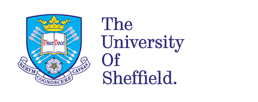
O'Hagan, A, Stevens, J. W. and Campbell, M. J.
Department of Probability and Statistics, University of Sheffield, Sheffield, England, AstraZeneca R&D Charnwood, Loughborough, England and Institute of Primary Care and General Practice, University of Sheffield, England
Publication details: Pharmaceutical Statistics 4, 187-201, 2005.
Conventional clinical trial design involves considerations of power, and sample size is typically chosen to achieve a desired power conditional on a specified treatment effect. In practice, there is considerable uncertainty about what the true underlying treatment effect may be, and so power does not give a good indication of the probability that the trial will demonstrate a positive outcome.
Assurance is the unconditional probability that the trial will yield a `positive outcome'. A positive outcome usually means a statistically significant result, according to some standard frequentist significance test. The assurance is then the prior expectation of the power, averaged over the prior distribution for the unknown true treatment effect.
We argue that assurance is an important measure of the practical utility of a proposed trial, and indeed that it will often be appropriate to choose the size of the sample (and perhaps other aspects of the design) to achieve a desired assurance, rather than to achieve a desired power conditional on an assumed treatment effect.
We extend the theory of assurance to two-sided testing and equivalence trials. We also show that assurance is straightforward to compute in some simple problems of normal, binary and gamma distributed data, and that the method is not restricted to simple conjugate prior distributions for parameters. Several illustrations are given.
Keywords: Assurance; Bayesian analysis; Bayesian clinical trial simulation; Binary data; Design of experiments; Expected power; Power; Preposterior analysis; Prior distribution; Sample size.